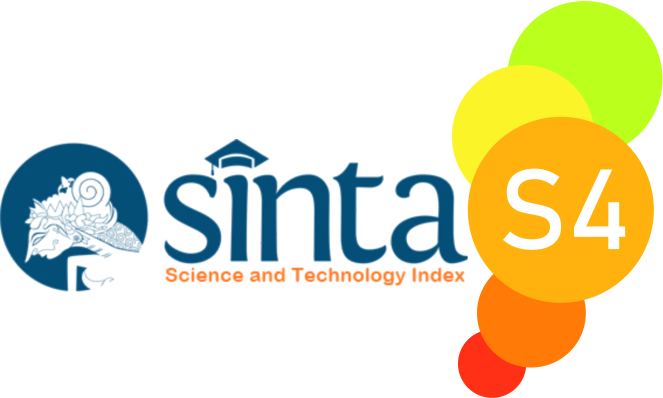PENGARUH POLA ASUH ORANG TUA TERHADAP KEMANDIRIAN DAN KEMAMPUAN REGULASI EMOSI ANAK USIA DINI
DOI:
https://doi.org/10.24903/jw.v3i1.204Abstract
Parenting is the way parents to educated their children. Each parent has different educational habits. Parenting patterns applied by parents in a family also vary, it is strongly influenced by how parents want to treat their children. In general, there are 3 parenting patterns, namely: authoritative, permissive, and democratic. When parents agree to apply the pattern of parenting that is considered the most ideal for their children, then the pattern of parenting that will apply the pattern of personality and habits within the child. In carrying out the parenting process of a parent child can provide an opportunity for the child to serve his needs on the simple side of things, as: when a one-year-old child begins to learn to hold a spoon and feed the food into his mouth by himself, in the supervision of his parents. Autonomy must be nurtured from an early age, and it is expected that autonomy can develop within the child. In developing the pattern of self-awareness in early childhood, as stated by Havinghurst that within a child there is an ability to make arrangements fortheir  emotion that is nothing but the ability to perform emotional regulation. In this study, researchers want to know how much influence of adopted parenting by the elderly on independence and emotional regulatory ability in early childhood. The design used in this study is quantitative, by developing 3 kinds of scale instruments, namely: the scale of parenting, the scale of autonomy, and the scale of emotional regulation. The scale is used to measure each of the variables present in this research. The result of hypothesis test using anova formula, with the help of SPSS.17, shows a significance value of 0.002 with a significance level of 0.05 (95%), indicating that there is a significant influence of parenting pattern on the independence and emotional regulation ability of the child early.
References
Arikunto, Suharsimi. 2006. Prosedur Penelitian.Jakarta: Rineka Cipta.
Casmini. (2007). Emotional parenting; Dasar-dasar Pengasuhan KecerdasanEmosi Anak. Yogyakarta: Nuansa Aksara
Desmita. ( 2009). Perkembangan Peserta didik. Bandung: Rosda Karya
Dewanggi M, dkk. ( 2012). Pengasuhan orang tua dan kemandirian anak usia 3-5 tahun berdasarkan gender di kampung adat Urug . Bogor. Institut Pertanian Bogor
Hadi, S. (2004). Analisis Regresi. Yogyakarta: Andi Offset.
Hoghuni, M. (2004). Handbook of Parenting. London.
Hurlock, B.E. (1999). Psikologi Perkembangan: Suatu Pendekatan Sepanjamg.Rentang Kehidupan. Ed. 5. Jakarta: Erlangga.
Liza Marini. & Elvi Andriani. (2005). Perbedaan Asertivitas Remaja Ditinjau dari Pola Asuh Orang Tua. PSIKOLogia.Vol: 1, No: 2.
Moh. Shochib. (2010). Pola Asuh Orang Tua Dalam Membantu Mengembangan Displin Diri sebagai Pribadi yang Berkarakter. Jakarta: Rineka Cipta.
Santrock, John W. 2007. Life-Span Development . Jilid I & II. Jakarta: Erlangga.
Song. (2010). Healty responses to children’s emotion. New York: Routledge.
Suardani, Luh,dkk.( 2016).Perbedaan tingkat kemandirian anak usia 5-6 tahun dilihat dari status pekerjaan ibu di keluarah Banyuning. Singaraja. Universitas Pendidikan Ganesha
Sugiyono .(2016). Metode Penelitian Kuantitatif, Kualitatif dan R & D. Bandung:Penerbit Alfabeta.
Walgito, B. (2010). Pengantar Psikologi Umum. Jakarta: Penerbit Andi
Yamin.Sabari (2013). Panduan PAUD (Pendidikan Anak Usia Dini). Jambi
Downloads
Published
How to Cite
Issue
Section
License
Authors retain copyright and grant the journal right of first publication with the work simultaneously licensed under a Creative Commons Attribution 4.0 International License that allows others to share the work with an acknowledgement of the work's authorship and initial publication in this journal.










